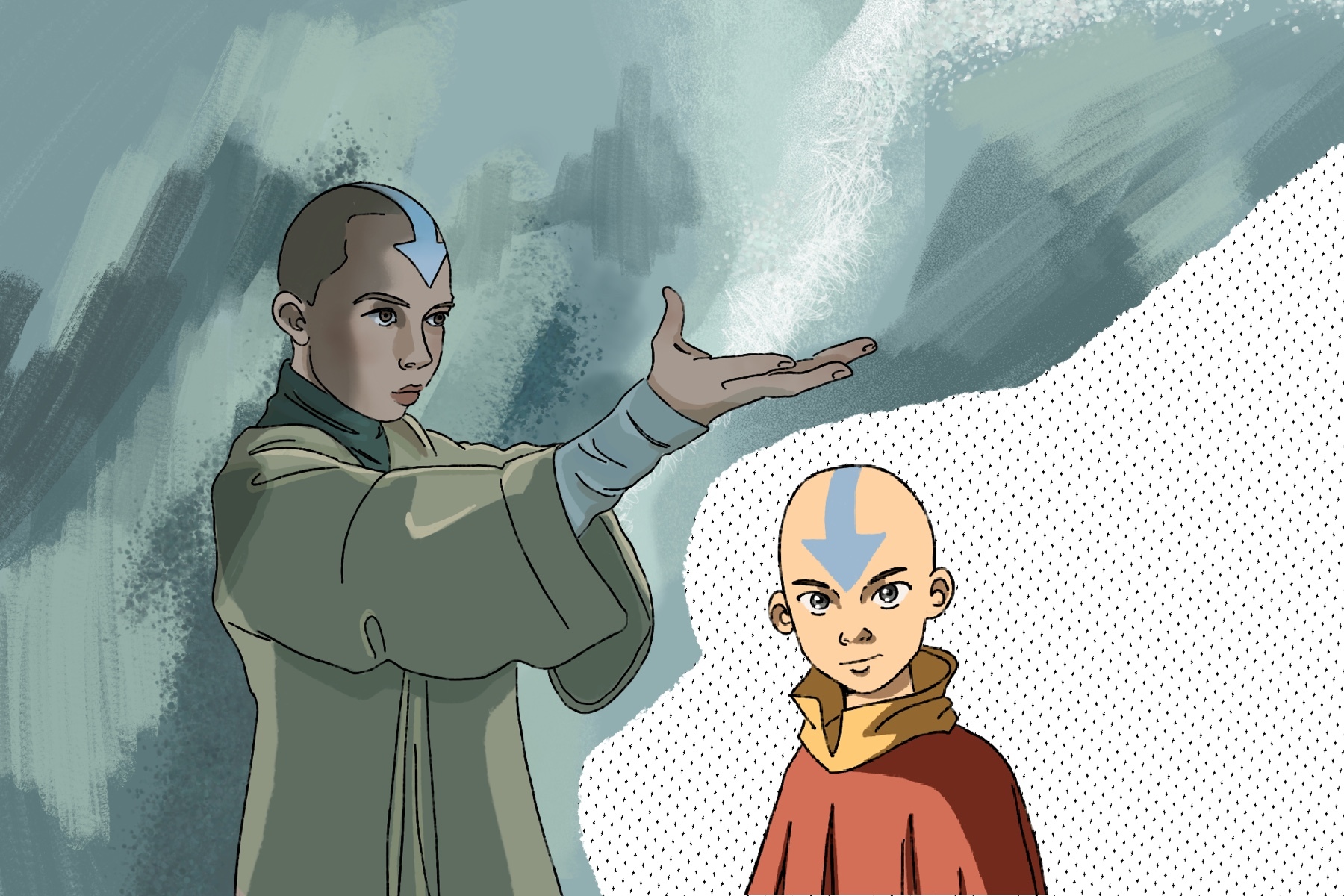M. Night Shyamalan’s 2010 film “The Last Airbender” was a cinematic catastrophe. From the poor narrative structure to the white actors cast to play Asian leads, the movie hardly resembles the animated show it was based on and failed to capture the charm of the original series. By default, live-action remakes aren’t animated, which is often a huge part of the original show’s appeal. This makes pulling off a successful adaptation incredibly difficult, especially considering that not every aspect of an animated series translates well into live-action.
The problem with converting animation to live-action is best shown by the “Avatar: The Last Airbender” character Appa, a huge, six-legged flying bison. The original series portrays him as a gentle beast, but Shyamalan’s depiction of Appa is unsettling. It attempts to give the sky bison a realistic design but looks more like a creature from a child’s nightmare. Some things are better left animated and Appa is definitely one of them, further proving live adaptations can’t recreate the appeal of animated shows. Even though few people ask for them, these adaptations continue to be made.
Though Disney has raked in millions from live-action remakes of its classic animated films, many people agree the remakes can’t compete with the originals. Netflix has also completely ignored fans’ disapproval of live remakes, churning out horrendous adaptations of anime like “Death Note” and “Cowboy Bebop.” Despite their poor performance, Netflix would not give up, announcing yet another remake of the classic animated series “Avatar: The Last Airbender.” It was clear the streaming service wouldn’t let the tainted legacy of Shyamalan’s 2010 film prevent it from adding a new installment to the “Avatar: The Last Airbender” franchise. And considering the streaming service’s reputation for butchering adaptations, fans were left questioning what cruel fate awaited the live-action “Avatar: The Last Airbender” series.
Created by Michael DiMartino and Bryan Konietzko, “Avatar: The Last Airbender” was inspired by Asian culture and mythology. In the world of “Avatar: The Last Airbender,” individuals possess the ability to control, or “bend” one of the four elements — water, earth, fire, or air — but only the Avatar can control all four. As a symbol of hope, the Avatar maintains world peace and acts as a diplomatic figure. The series focuses on Aang, the last airbender and current Avatar, as he travels the war-ravaged world with his friends to end the Fire Nation’s imperial rule. The story also focuses on Zuko, the banished Fire Nation prince tasked with capturing Aang to restore his lost honor. The world-building, characterization and storytelling, combined with the show’s spectacular animation, led critics and fans to crown the series one of the greatest shows of all time.
Nickelodeon’s 2005 hit series premiered over a decade ago and amassed an incredible amount of popularity during its initial run on television, boasting a viewership of over a million each episode. The four-part series finale premiered to a series-high 5.6 million viewers, but this was only the beginning. When the animated series made its debut on Netflix in 2020, its popularity soared to new heights thanks to former fans and brand-new viewers, who catapulted it to the streaming service’s No. 1 spot. Fifteen years later, “Avatar: The Last Airbender” still engaged audiences, and its positive acclaim only reinforced Netflix’s decision to remake the animated series.
With the original creators initially returning as executive producers for the remake, fans were beyond excited for a proper “Avatar: The Last Airbender” adaptation. However, rumors circulated about Netflix’s approach to the live-action series, reimagining the show with a “darker, mature” tone. This supposedly involved aging the main characters while adding sex scenes and blood. Mike and Bryan appeared to confirm these rumors when they announced they were parting ways with Netflix due to creative differences, and fans rallied behind them, voicing their support and denouncing Netflix’s live-action remake. They knew what a live adaptation without the guidance of the creators looked like already, and changing the show’s tone would only do more harm than good.
Given Netflix’s poor track record for adaptations, “Avatar: The Last Airbender” fans had little hope for the remake’s success. Like the 2010 “The Last Airbender” film, Netflix adaptations drain the life force from animated shows by deviating from the source material and altering aspects that fundamentally change the show. The original “Cowboy Bebop” anime had some funny moments, but Netflix’s live-action adaptation inserted too many comedic bits that felt out of place. Netflix also altered major rules in “Death Note” and failed to capture the essence of the characters and themes, making it feel completely different. Netflix evidently decided a “mature” approach to the “Avatar: The Last Airbender” remake would be best, apparently believing the animated show was childish — a label that’s far too often given to animated shows and films.
Animation isn’t as respected as the live-action format and is unfairly classified as immature. In reality, animated movies are much more than that, and they serve as a perfect medium for amazing storytelling. Netflix’s desire to make the series more mature could reflect its belief that the original “Avatar: The Last Airbender” is just another kid’s show when it’s far from that. The show had a huge audience that wasn’t just children and though it was aimed at younger viewers, it contained mature themes that covered abuse, genocide, death and loss, just to name a few. However, by losing the levity afforded by the animation, the show loses its original, nuanced tone.
While it will be difficult for Netflix to recapture the charm of the original series, it’s not impossible to execute an acceptable adaptation. Live-action remakes don’t always need to be a copy and paste of the original and may get away with diverging from the source material. However, this depends entirely on how it’s done: The “Diary of a Wimpy Kid” films are a great example of an adaptation that’s faithful to the source material while simultaneously changing it.
Regardless, some elements can apply to adaptations as a general guideline. The movies contain scenes that aren’t in the books or they combine elements of different books in one movie. However, the films maintain a consistent theme established by the books, while adding to the source material. That’s important to keep in mind when it comes to live-action reimaginations of animated shows. However, since Netflix has changed the live remake’s overall tone, who knows what we can expect from the adaptation.
We can’t say for sure how the “Avatar: The Last Airbender” adaptation will turn out. The casting choices have stayed true to the original show, so the Netflix series is undoubtedly already better than Shyamalan’s “The Last Airbender” film in at least that respect. However, Netflix’s approach to the series is concerning, making the adaptation’s fate uncertain. As disappointing as it was to hear of the creators’ exit from Netflix, great news came out of it. Mike and Bryan joined with Nickelodeon and Paramount to launch Avatar Studios, a media company with the two creators at the helm of new, original “Avatar: The Last Airbender” films and shows. And the even better news is that these new additions to the saga will be animated. So far, they’ve announced three movies, mentioning that each new film or show will have a distinct visual art style, so it’s exciting to see “Avatar: The Last Airbender” get back to its roots. Even if Netflix’s live adaptation doesn’t live up to the original, Avatar Studios will provide plenty of original, animated stories for old and new fans to enjoy.
















